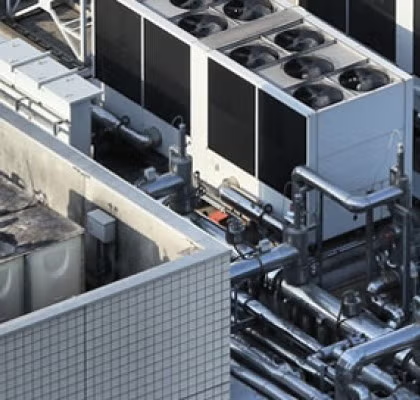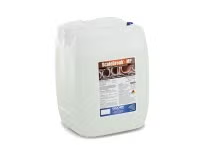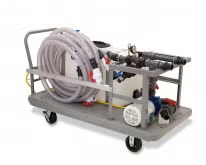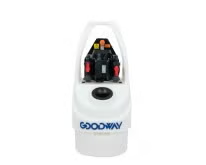Goodway Technologies Offers Tips to Avoid the Growing Pains of Mold In Food Production Facilities

Stamford, Conn. – September 4, 2019 – While food manufacturing and processing facilities, especially bakeries, may vary in the types of bacteria they battle daily, there is one challenge they can all agree on—mold is not welcome.
The reality is, however, that mold exists everywhere. While it is impossible to eliminate, it is essential to take the proper steps to manage it before it becomes a bigger issue. Mold can impact any building or facility and can proliferate and impact occupants’ health. The Environmental Protection Agency (EPA) says the presence of mold can potentially cause adverse health problems, especially for those suffering from allergies or respiratory problems. For food-related facilities, especially bakeries, there is additional concern over the end product containing any harmful toxins. Yeast and mold can also reduce shelf life, impacting production quality.
“Mold needs moisture, warmth, and a food source to flourish. Warm, damp environments where yeast and water reside are perfect breeding grounds for mold to grow and can cause problematic sanitation issues,” said Evan Reyes, Director of Sales, Sanitation Division. “It’s important to proactively conduct cleaning and sanitation of all environmental and production systems to ensure a safe and healthy production environment and product.”
The first place that most food facilities look when there is the presence of mold is their air conditioning systems. However, any forced air, be it AC, compressed air or ventilation, can be fast ways to spread mold throughout a building and into production areas.
Necessary precautions can go a long way. The EPA recommends the following steps to assist with mold prevention:
- Fix leaky plumbing and leaks in the building envelope as soon as possible.
- Watch for condensation and wet spots. Fix source(s) of moisture problem(s) as soon as possible.
- Prevent moisture due to condensation by increasing surface temperature or reducing the moisture level in air (humidity). To increase surface temperature, insulate or increase air circulation. To reduce the moisture level in air, repair leaks, increase ventilation (if outside air is cold and dry), or dehumidify (if outdoor air is warm and humid).
- Keep heating, ventilation, and air conditioning (HVAC) drip pans clean, flowing properly and, unobstructed.
- Vent moisture-generating appliances, such as dryers, to the outside where possible.
- Maintain low indoor humidity, below 60% relative humidity, ideally 30-50%, if possible.
- Perform regular building/HVAC inspections and maintenance as scheduled.
- Clean and dry wet or damp spots within 48 hours.
- Don't let foundations stay wet. Provide drainage and slope the ground away from the foundation.
Another potential location for the source of the mold is production contact surfaces, like packaging and conveyor belts. Goodway Technologies’ dry steam sanitation solutions are simple to use, reduce cleaning time and are specially designed for thorough, deep cleaning of food contact surfaces, non-food contact surfaces, or for safely cleaning around water-sensitive equipment. These machines thrive in dry environments, particularly where water use is avoided, or must be used in moderation.
For example, the GVC-18000 Heavy-Duty Dry Steam Cleaner is a compact, yet powerful dry steam cleaner that can get into cracks and crevices that are ideal spots for mold to grow. For conveyor belts, there are portable and fixed brushless and portable jet system options to clean conveyor belts in dry environments.
Dry steam cleaning is an economical, eco-friendly, and effective form of cleaning. It produces vapor with as little as 5% moisture content. This steam is superheated and placed under pressure to provide powerful cleaning and sanitation properties. Mold, mildew, and a variety of bacteria and allergens are instantly eradicated, leaving surfaces clean.
Another solution is the BioSpray® Portable Surface Sanitation System, which uses advanced CO2 delivery technology to safely apply BioSpray® D2 EPA registered surface sanitizer in a highly calibrated stream for full coverage. This alcohol-based sanitizer dries rapidly, removing residual water, a key element to mold growth.
For more information on Goodway’s solutions, visit www.goodway.com or call 1-800-333-7467.
About Goodway Technologies
Founded in 1966, Goodway Technologies has been delivering better maintenance solutions for more than 50 years. Goodway Technologies provides innovative maintenance solutions for a wide variety of industries including commercial HVAC, food and beverage processing, power generation and manufacturing. Over the decades, Goodway has worked with our customers to create better solutions for tube cleaning systems, industrial vacuums, cooling tower maintenance systems, dry steam solutions, descaling systems, coil cleaning products and practically everything else for the care and maintenance of HVAC systems. Further information is available at www.goodway.com. Goodway is recognized as an ISO 9001:2015 certified company.




